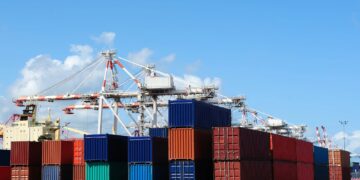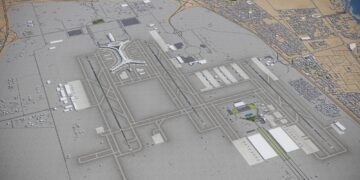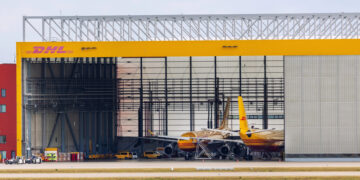Saudi Arabia is advancing its logistics sector through innovative, tech-driven investments as part of its Vision 2030 strategy, according to an assistant minister. At the Global Logistics Forum, Abdullah Al-Dubaikhi from the Ministry of Investment emphasized the Kingdom’s commitment to developing a workforce skilled in new technologies.
The National Logistics Strategy seeks to transform Saudi Arabia into a global logistics hub by 2030, aiming to raise the sector’s GDP contribution from 6% to 10%. Al-Dubaikhi highlighted the importance of attracting unique investments, such as Maersk’s robotics warehouse in Jeddah, over traditional facilities.
Al-Dubaikhi stressed the need for smart warehouses and skilled professionals, noting that employing software engineers is more beneficial than unskilled labor. He also pointed out the significance of training and development in adapting to innovative formats and underscored the role of public-private partnerships, as seen in Saudi ports now managed by the private sector.
Strategic Location and Global Competition
Saudi Arabia’s geographical positioning grants it access to multiple regions, enhancing its potential as a global logistics hub. Al-Dubaikhi identified key factors for success, including infrastructure quality and technological integration, with Jeddah Islamic Port and King Abdullah Port serving as primary hubs.
He acknowledged the competition with 30 other global logistics hubs like Singapore and Shanghai and stressed the importance of logistics zones in cementing Saudi Arabia’s global position.
Attracting Foreign Investment
The Kingdom offers a favorable regulatory environment for foreign investors, allowing 100% ownership in most sectors. Al-Dubaikhi assured that business setup processes are swift, with formalities completed in three hours.
Rayan Al-Bakri from the Ministry of Transport and Logistics highlighted efforts to integrate sector stakeholders, aiming to make Saudi Arabia the hub of choice by enhancing regulatory processes and infrastructure.
Innovation and Future Supply Chains
Suliman Al-Mazroua, CEO of the National Industrial Development and Logistics Program, discussed the transformative impact of technologies like AI and automation on supply chains. He emphasized the need for sustainable investments to address potential disruptions.
Al-Mazroua announced plans for an innovation institute in collaboration with New Lab to boost the logistics sector, focusing on circular economies and predictive analytics for resilience against risks.









